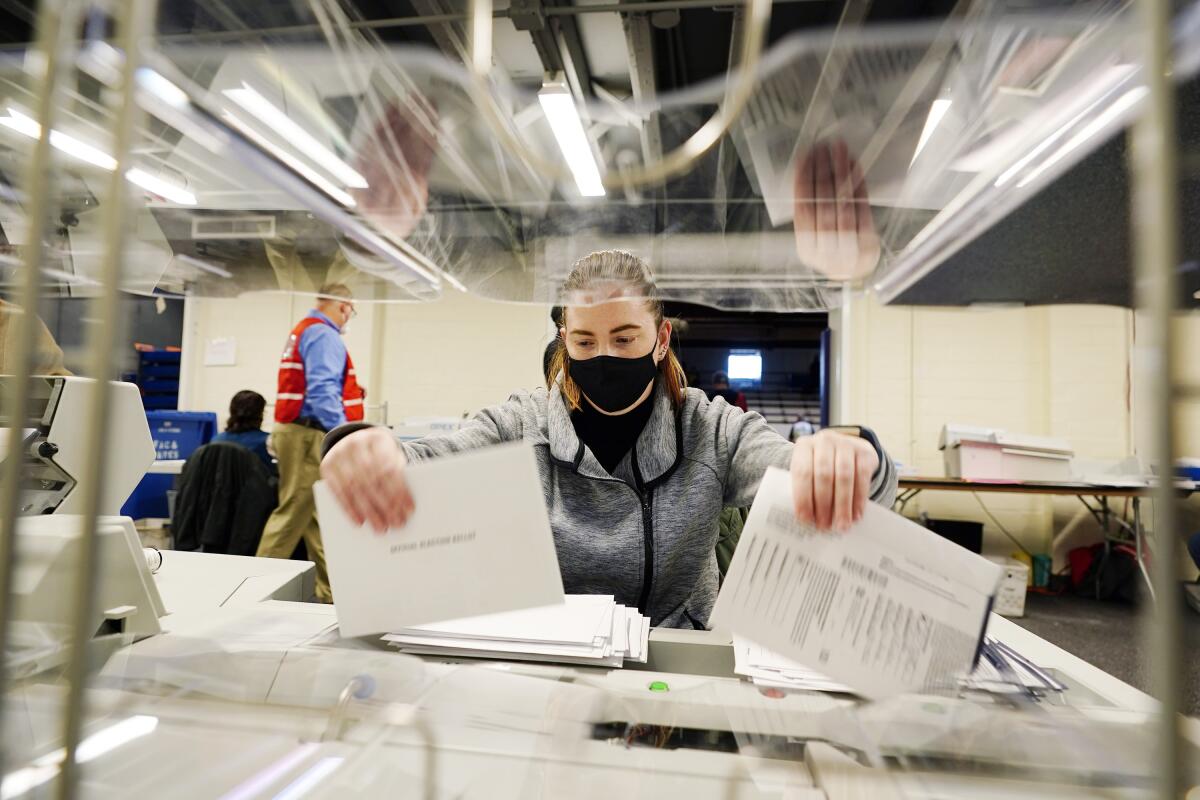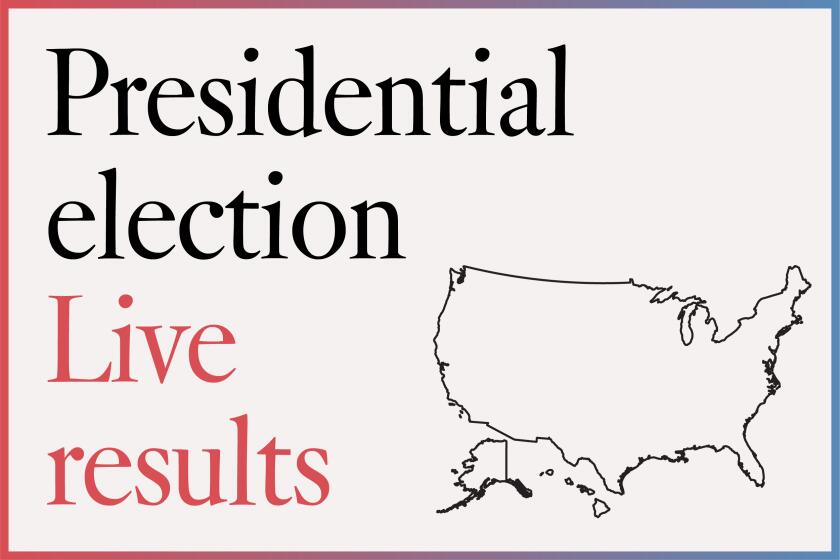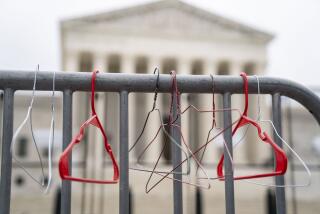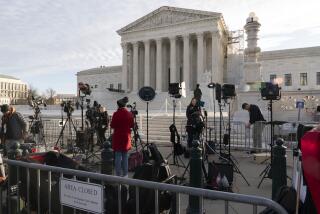Op-Ed: Trump’s secret weapon for keeping his job: his Supreme Court picks

It seems so elemental, the most basic principle of U.S. elections: All votes should be counted before a winner is declared. Yet President Trump is insisting that the tally of absentee ballots should be halted.
Can an American president really believe that millions of lawfully cast ballots shouldn’t be counted? That would be profoundly antidemocratic and, when added to Trump’s premature claim of victory, puts us in extremely dangerous waters. We have a sitting president trying to convince his supporters that there is something fraudulent about counting all the lawfully cast votes.
Under the Constitution, it is left to each state to count its votes and choose its electors. My fervent hope is that the Supreme Court will honor this core principle and not interfere, as it did in 2000 with its decision in Bush vs. Gore. Unfortunately, there are disquieting signs from the most conservative Supreme Court justices that they may not allow states to decide who gets their electoral votes.
Bush vs. Gore was the first time in history that the Supreme Court in effect decided a presidential election, and it did so by ignoring basic constitutional principles. On Dec. 8, 2000, with George W. Bush ahead by a few hundred votes in Florida — out of 6 million cast in the state — the Florida Supreme Court ordered that all of the uncounted votes be tallied throughout the state. The justices appointed a state court judge, Terry Lewis, to oversee the counting and ordered that it be completed by Dec. 10.
But then, on the morning of Dec. 9, the United States Supreme Court interceded and, by a 5-4 vote, stopped the counting pending its decision. Three days later, the Supreme Court reversed the Florida Supreme Court and, again by a 5-4 margin, held that counting uncounted votes without preset standards risked denying equal protection, as similar ballots might be treated differently.
In part, the problem with this ruling was that it was purely speculative regarding whether similar ballots would be treated differently. Judge Lewis’ role as overseer was to make sure that didn’t happen.
But the larger difficulty with the court’s decision was the failure to allow the Florida Supreme Court to cure the problem by prescribing standards for how the ballots were to be treated. The five most conservative justices then on the U.S. Supreme Court were usually advocates of states’ rights, but in this case, they ignored that principle.
Now it is looking very possible that, again this year, the presidential election could turn on whether the U.S. Supreme Court allows a state to decide state law. Last month, the Pennsylvania Supreme Court, interpreting the state Constitution, extended the time for receipt of absentee ballots. This was very much within its authority. Pennsylvania Republicans, though, sought U.S. Supreme Court review and the justices split 4-4 over whether to issue a stay to reverse the time extension. This was after Justice Ruth Bader Ginsburg’s death and before Justice Amy Coney Barrett began participating in decisions.
Justice Samuel A. Alito Jr. and others indicated at the time, however, that the court might be willing to reconsider the matter after the election. And this time, Barrett would probably be part of the decision.
The Constitution is clear. It says that “each State shall appoint” its slate of presidential electors “in such manner as the legislature thereof may direct.” In Bush vs. Gore, Chief Justice William H. Rehnquist wrote a separate opinion, joined by only Justices Antonin Scalia and Clarence Thomas, saying that this means that state courts cannot interpret state constitutions to protect the right to vote. As a matter of constitutional law, this makes no sense. State courts always can interpret their own constitutions to protect rights.
But at least four of the current justices, and perhaps now five with Justice Barrett, may accept this theory. At this moment, it is possible that the conservative justices could disallow the counting of absentee ballots received after the initial deadline. It is expected that these will favor Joe Biden over Donald Trump, and it is conceivable that they could be the ballots that decide who is president.
It is crucial that the Supreme Court stay out of this and allow Pennsylvania — and every state — to decide which candidate won its electoral votes. Perhaps none of this will matter, and either Biden or Trump will emerge the clear winner in Pennsylvania and other closely contested states after the votes are counted.
But it is deeply distressing to contemplate how the Supreme Court, with three justices appointed by Donald Trump, could anoint him to stay in the White House.
Erwin Chemerinsky is dean of the UC Berkeley School of Law and a contributing writer to Opinion.
More to Read
A cure for the common opinion
Get thought-provoking perspectives with our weekly newsletter.
You may occasionally receive promotional content from the Los Angeles Times.







